Another Webb Telescope instrument gets the "go for science"
Saturday, 02 July 2022 11:09 The second of NASA's James Webb Space Telescope's four primary scientific instruments, known as the Mid-Infrared instrument (MIRI), has concluded its postlaunch preparations and is now ready for science.
The last MIRI mode to be checked off was its coronagraphic imaging capability, which uses two different styles of masks to intentionally block starlight from hitting its sensors when attem
The second of NASA's James Webb Space Telescope's four primary scientific instruments, known as the Mid-Infrared instrument (MIRI), has concluded its postlaunch preparations and is now ready for science.
The last MIRI mode to be checked off was its coronagraphic imaging capability, which uses two different styles of masks to intentionally block starlight from hitting its sensors when attem Gemini North spies ultra-faint fossil galaxy discovered on outskirts of Andromeda
Saturday, 02 July 2022 11:09 An unusual ultra-faint dwarf galaxy has been discovered on the outer fringes of the Andromeda Galaxy thanks to the sharp eyes of an amateur astronomer examining archival data processed by NSF's NOIRLab's Community Science and Data Center. Follow-up by professional astronomers using the International Gemini Observatory, a Program of NSF's NOIRLab, revealed that the dwarf galaxy - Pegasus V - cont
An unusual ultra-faint dwarf galaxy has been discovered on the outer fringes of the Andromeda Galaxy thanks to the sharp eyes of an amateur astronomer examining archival data processed by NSF's NOIRLab's Community Science and Data Center. Follow-up by professional astronomers using the International Gemini Observatory, a Program of NSF's NOIRLab, revealed that the dwarf galaxy - Pegasus V - cont Hubble delves into cosmic treasure trove
Saturday, 02 July 2022 11:09 This image from the NASA/ESA Hubble Space Telescope captures the sparkling globular cluster NGC 6569 in the constellation Sagittarius. Hubble explored the heart of this cluster with both its Wide Field Camera 3 and Advanced Camera for Surveys, revealing a glittering hoard of stars in this astronomical treasure trove.
Globular clusters are stable, tightly bound clusters containing tens of t
This image from the NASA/ESA Hubble Space Telescope captures the sparkling globular cluster NGC 6569 in the constellation Sagittarius. Hubble explored the heart of this cluster with both its Wide Field Camera 3 and Advanced Camera for Surveys, revealing a glittering hoard of stars in this astronomical treasure trove.
Globular clusters are stable, tightly bound clusters containing tens of t Novel NASA instrument sets sights on Earth-bound solar radiation
Saturday, 02 July 2022 11:09 A very small instrument has a big job ahead of it: measuring all Earth-directed energy coming from the Sun and helping scientists understand how that energy influences our planet's severe weather, climate change and other global forces.
About the size of a shoebox or gaming console, the Compact Total Irradiance Monitor (CTIM) is the smallest satellite ever dispatched to observe the sum of
A very small instrument has a big job ahead of it: measuring all Earth-directed energy coming from the Sun and helping scientists understand how that energy influences our planet's severe weather, climate change and other global forces.
About the size of a shoebox or gaming console, the Compact Total Irradiance Monitor (CTIM) is the smallest satellite ever dispatched to observe the sum of Virgin Orbit rocket launches 7 US defense satellites
Saturday, 02 July 2022 07:54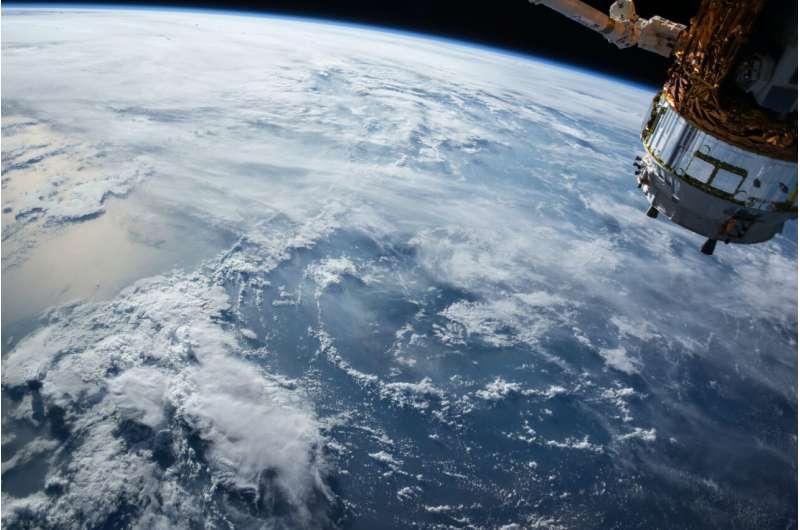
A Virgin Orbit rocket carrying seven U.S. Defense Department satellites was launched from a special Boeing 747 flying off the Southern California coast and streaked toward space Friday night.
The modified jumbo jet took off from Mojave Air and Space Port in the Mojave Desert and released the rocket over the Pacific Ocean, northwest of Los Angeles.
The launch was procured by the U.S. Space Force for a Defense Department test program. The seven payloads will conduct various experiments.
"And there we have it, folks!" the company tweeted shortly before 1 a.m. local time, about an hour after the rocket separated from the 747. "NewtonFour successfully reignited and deployed all customer spacecraft into their target orbit."
It was Virgin Orbit's fourth commercial launch and first night launch. The launch was originally scheduled for Wednesday night, but that attempt was scrubbed due to a propellant temperature issue.
Virgin Orbit named the mission "Straight Up" after the hit on Paula Abdul's debut studio album "Forever Your Girl," which was released through Virgin Records in 1988.
Virgin Orbit was founded in 2017 by British billionaire Richard Branson.
Virgin Orbit launches Space Force mission
Saturday, 02 July 2022 07:15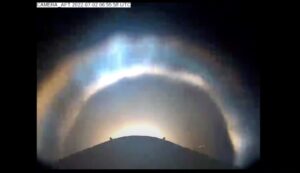
Virgin Orbit successfully placed a set of payloads for the U.S. Space Force into orbit early July 2 in the company’s first nighttime launch.
The post Virgin Orbit launches Space Force mission appeared first on SpaceNews.
ULA’s Atlas 5 launches U.S. Space Force experimental missile-warning satellite
Friday, 01 July 2022 22:41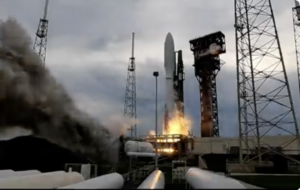
A United Launch Alliance Atlas 5 rocket on July 1 launched the USSF-12 mission for the U.S. Space Force. The rocket lifted off at 7:15 p.m. Eastern from Space Launch Complex-41 at Cape Canaveral Space Force Station, Florida.
Agile to consolidate operations in new Colorado plant
Friday, 01 July 2022 16:51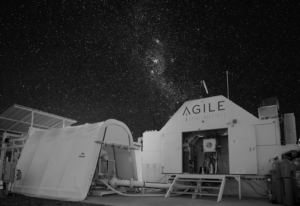
Agile Space Industries is preparing to consolidate propulsion design, manufacturing and production in a new 1,860-square-meter facility in Durango, Colorado.
The post Agile to consolidate operations in new Colorado plant appeared first on SpaceNews.
Ibuprofen tablets with flavor added survive better in space
Friday, 01 July 2022 13:16
Ibuprofen tablets modified to survive in space have returned to Earth and shown that those with added flavor survived better with less degradation than those with no added taste.
Researchers from the International Flavor Research Center at the University of Nottingham worked with the University of Adelaide on the research that also showed that an iron oxide coating formed during tablet manufacture could protect Ibuprofen.
"Medicines taken on space missions are exposed to cosmic rays which limit their 'space shelf life' and can even lead to the formation of toxic substances as the drug content declines," said the University of Adelaide's Professor Volker Hessel, Research Director of the Andy Thomas Center for Space Resources and Professor in the School of Chemical Engineering and Advanced Materials who led the project to send tablets into space.
"We have tested and proven countermeasures to the degrading effects of cosmic rays by sending ibuprofen tablets made in our laboratory to the International Space Station (ISS) for six months and checking them on their return.
"Four of the six ibuprofen tablets from outside the ISS, each made with a distinct formulation and protection concept, significantly decomposed to a high number of ibuprofen fragments.
Week in images: 27 June - 1 July 2022
Friday, 01 July 2022 12:15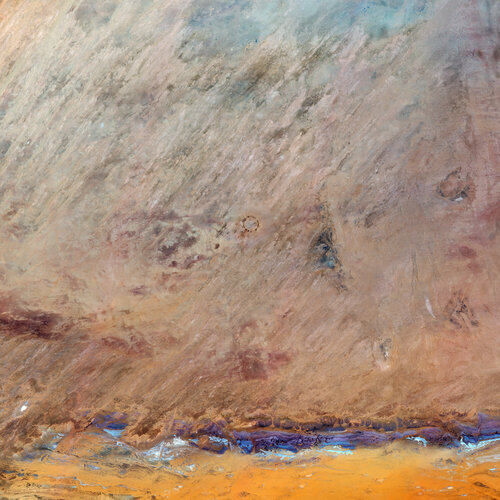
Week in images: 27 June - 1 July 2022
Discover our week through the lens
OneWeb to launch second-generation satellites with Relativity Space
Friday, 01 July 2022 10:52
OneWeb will launch some of its next-generation satellites on Relativity Space’s next-generation launch vehicle starting as soon as 2025, the companies announced June 30.
The post OneWeb to launch second-generation satellites with Relativity Space appeared first on SpaceNews.
SpaceX launches first C-band television broadcast satellite into space for SES
Friday, 01 July 2022 09:14 The first television broadcast satellite under SES's C-band lifted off from Cape Canaveral on Wednesday evening on a SpaceX rocket.
SES, a video and data solutions company, said the satellite will free up the lower 300 MHz of C-band spectrum to ensure the company can provide video and data services to its customers while enabling wireless operators to quickly deploy 5G services across t
The first television broadcast satellite under SES's C-band lifted off from Cape Canaveral on Wednesday evening on a SpaceX rocket.
SES, a video and data solutions company, said the satellite will free up the lower 300 MHz of C-band spectrum to ensure the company can provide video and data services to its customers while enabling wireless operators to quickly deploy 5G services across t Humans in the loop help robots find their way
Friday, 01 July 2022 09:14 Just like us, robots can't see through walls. Sometimes they need a little help to get where they're going. Engineers at Rice University have developed a method that allows humans to help robots "see" their environments and carry out tasks. The strategy called Bayesian Learning IN the Dark - BLIND, for short - is a novel solution to the long-standing problem of motion planning for robots that wo
Just like us, robots can't see through walls. Sometimes they need a little help to get where they're going. Engineers at Rice University have developed a method that allows humans to help robots "see" their environments and carry out tasks. The strategy called Bayesian Learning IN the Dark - BLIND, for short - is a novel solution to the long-standing problem of motion planning for robots that wo Life in the abyss, a spectacular and fragile struggle for survival
Friday, 01 July 2022 09:14 Cloaked in darkness and mystery, the creatures of the deep oceans exist in a world of unlikely profusion, surviving on scant food and under pressure that would crush human lungs.
This extremely hostile environment, which will come under the spotlight at a major United Nations oceans summit in Lisbon this week, has caused its inhabitants to develop a prodigious array of alien characteristics
Cloaked in darkness and mystery, the creatures of the deep oceans exist in a world of unlikely profusion, surviving on scant food and under pressure that would crush human lungs.
This extremely hostile environment, which will come under the spotlight at a major United Nations oceans summit in Lisbon this week, has caused its inhabitants to develop a prodigious array of alien characteristics Lost in space: Astronauts struggle to regain bone density
Friday, 01 July 2022 09:14 Astronauts lose decades' worth of bone mass in space that many do not recover even after a year back on Earth, researchers said Thursday, warning that it could be a "big concern" for future missions to Mars.
Previous research has shown astronauts lose between one to two percent of bone density for every month spent in space, as the lack of gravity takes the pressure off their legs when it co
Astronauts lose decades' worth of bone mass in space that many do not recover even after a year back on Earth, researchers said Thursday, warning that it could be a "big concern" for future missions to Mars.
Previous research has shown astronauts lose between one to two percent of bone density for every month spent in space, as the lack of gravity takes the pressure off their legs when it co 
